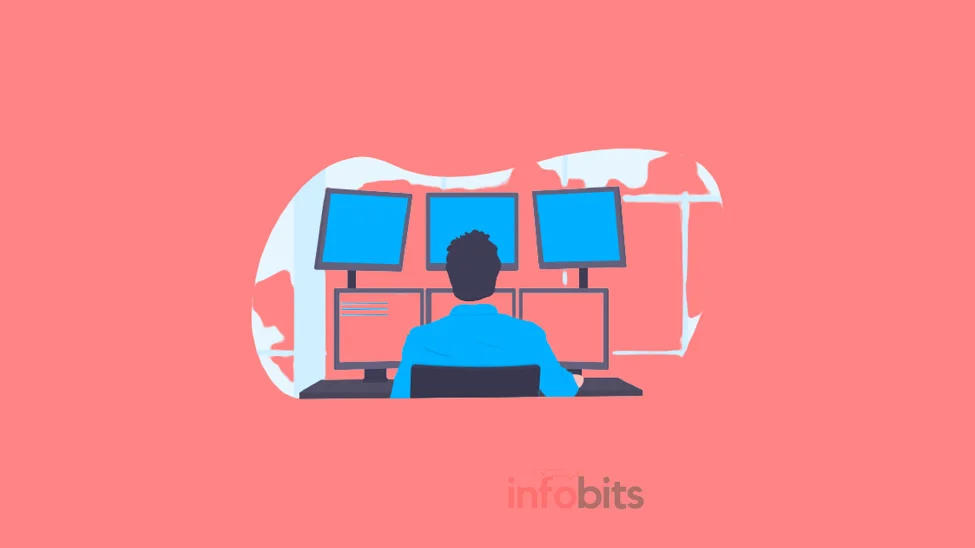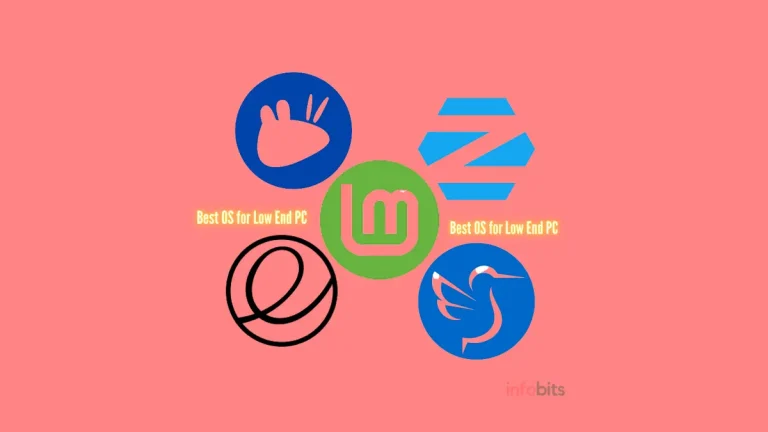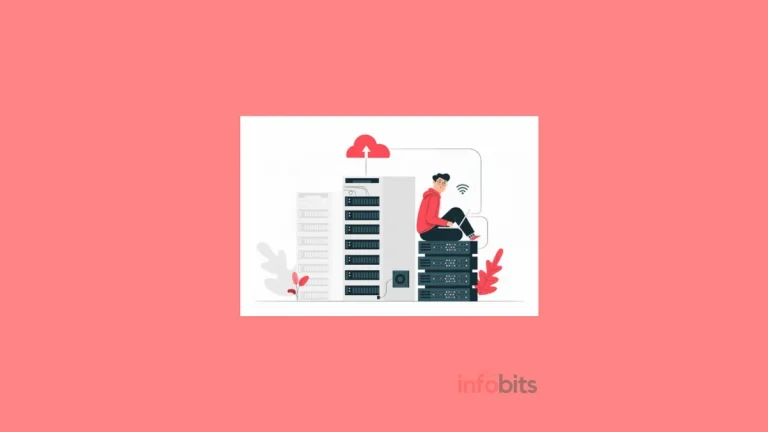Which Is Better for You: Dual Boot vs Virtual Machine?
When we want to run more than one operating system on a computer, we typically use dual boot or virtual machines. But there is always a doubt in dual boot vs virtual machine selection.
Both of these methods run multiple operating systems or versions of the same operating system on a single computer.
It is important to remember that these approaches are very useful for creating various operating system environments, and each method serves different purposes.
The majority of us use Linux on Windows computers (or vice versa) or Windows on a Mac.
But how can we know which method is best for us or which one is best for our computer?
We’ve chosen to do a simple Dual Boot vs Virtual Machine comparison because Infobits gets a lot of questions from our readers in this regard.
What is Dual Boot?
It boots two operating systems, as the name suggests. This ensures you can opt to boot the computer from either of the installed operating systems.
This approach assists in the implementation and use of two or more operating systems. Then, when the computer boots, we must choose the necessary operating system.
Both operating systems cannot operate concurrently. To boot into the other operating system, restart the PC and select the appropriate operating system from the boot menu.
You can only use one of the installed operating systems by using dual boot. You will have no access to any other installed operating system files or services while using the other.
In brief, Dual Boot helps one to run our computer in an independent environment, close to how we might use a single operating system. As a result, we will be able to fully use our machine’s resources.
If you want to use any other installed operating system, you must restart the computer and choose to boot from a certain list of operating systems.
Whichever operating system you boot into has access to all active machine resources.
Dual boot is very handy when we need to use a single operating system for an extended period at its highest performance and efficiency.
This approach is particularly helpful on an old computer with minimal hardware resources.
What is a Virtual Machine?
We build a virtual world in the native operating system and run several operating systems in this virtual platform using this method.
Assume you have a Windows PC. In this case, we are running virtual machine applications in Windows, such as Oracle VM VirtualBox, and then we will install our secondary operating systems on the virtual platform.
You may use a virtual machine to run other operating systems alongside the existing one. A virtual machine runs like a program in the native operating system.
This guest operating system runs in a different window within your host operating system.
The virtual machine program emulates the hardware resources needed by the guest OS, such as the CPU, RAM, network interface, and hard disc.
A virtual machine is particularly useful because we choose to use several operating systems at the same time, such as when evaluating applications on different OS platforms or testing an operating system itself.
However, as you are aware, in a virtual machine environment, multiple operating systems and programs are running simultaneously. To manage all of these operations, the computer should have a decent hardware configuration.
Things to Consider in Dual Boot vs Virtual Machine Decision
We now have a basic understanding of dual boot and virtual machine processes. Before settling on the right one for you, consider the following aspects.
1. Set-Up
Although not impossible, dual booting is more difficult than using a virtual machine. To install the operating system, you’ll need to build a partition and use a bootable device.
Related: Install Windows 10 From a USB Drive
Furthermore, an error or dispute could occur during the installation of the new operating system. Overall, dual-booting necessitates more care and is more subject to error.
All you need to get started in a virtual machine setup is virtual machine software and the OS ISO file as we discussed earlier. The best part is that you can run operating systems with as many profiles as you like.
2. Computer Hardware Configuration
When running, an operating system in a computer uses a large amount of CPU capacity and RAM power. It becomes impossible to manage things when running a virtual machine on an underpowered old computer.
It may fail to run both operating systems concurrently in that condition. It is also recommended to use dual boot in a computer with a low hardware configuration.
In a dual boot configuration, one operating system can receive full hardware support.
Furthermore, some CPU or GPU resource-hogging programs, such as video editing, 3D animation, gaming, or photo editing applications, can not work properly in a virtual environment, even on a computer with a high-end hardware configuration.
As a result, it is preferable to use and run these programs in a dual boot setup.
3. Do You Have SSD or HDD on Your Computer?
SSD (Solid State Drive) is much faster than HDD (Hard Disk Drive). A machine with an SSD can perform fast shutdown and restarts. As a result, an SSD system is best suited for a dual boot configuration.
Restating an HDD can take 5-10 minutes or more, and switching from one operating system to another is a time-consuming process.
Go with Virtual Machine if your device with HDD has a decent hardware setup. It is extremely useful when switching between different applications on different operating systems.
4. Are You Using Different Operating Systems at a Time?
Another thing to consider when comparing Dual Boot vs Virtual Machine is how much time you spend using an operating system.
As previously mentioned, a virtual machine setup is beneficial for people who use several operating systems at the same time.
A virtual machine is suitable for multitasking because it helps you to switch between operating systems with a single click.
However, it is not a good idea for those who spend a lot of time in a virtual machine environment using a single operating system.
Assume you are a native Windows user who is running Ubuntu Linux on a virtual machine to access special applications.
In this case, if you want to use Ubuntu for longer periods, it is better to use it in dual boot mode. If you are willing to compromise time to restart, you will be able to operate at the system’s highest performance.
5. Want to Use a Specific App in the Secondary OS?
This is the condition in which you use the native operating system for all of your programs and only occasionally use the secondary OS for a particular program. The dual boot would be a nightmare for you.
If you are a native Mac user and want to use Windows for a particular program, such as Photoshop, for a short time, a virtual machine is preferable to a dual boot setup.
The same is true when using a virtual machine to compare various operating systems. It is not a good idea to use the dual boot to test an operating system.
When compared to dual boot, here in the virtual machine, installing and removing various operating systems is a very simple process.
6. Security
When we test operating systems or other applications, we face the risk of infecting the native operating system with malware.
In a virtual machine, the installation and operation take place in a sandboxed environment, with no possibility of intrusion on the native operating system.
Malware, on the other hand, can attack the hard disc and the native OS directly in dual boot mode. When compared to malware removal in a dual boot machine, removing malware in a virtual machine is a simple operation.
Related: Do You Know About Important Computer Viruses And Their Types?
7. Saving and Sharing of Files and OSs
Another benefit of a Virtual Machine is the ease with which files can be shared between operating systems.
So, if you need to share a large number of files between native and guest operating systems, or between virtual OSs, you can use a virtual machine.
A virtual machine can also be used to save a snapshot of a guest OS as a separate file.
This feature is very useful when we want to run this OS on a different machine or when we want to restore the previous good working state of that OS after an error occurs.
Dual Boot vs Virtual Machine: Summary
We’ve seen that both methods have advantages and disadvantages. The usage decision is solely decided by our application and device configuration.
In this context, we’d like to summarise the following points.
- Compared to a virtual machine, installation in a dual boot is tedious and time-consuming.
- Dual boot is better suited for computers with simple system configurations. It does not rule out the possibility of dual-booting in high-end systems.
- Good hardware configurations are needed for virtual machine systems.
- The virtual machine is not recommended for resource-intensive high-end applications.
- In a virtual machine setup, file sharing between operating systems is possible.
- A virtual machine can create or save snapshots of virtual operating systems, which can then be run on a different virtual setup without the need for the original machine.
- If you want more computing resources than the interchangeability of operating systems and files, dual boot is the way to go.
Conclusion
Which is better, dual boot or virtual machine?
You should be able to decide which configuration is better for you now that you understand the benefits and drawbacks of both.
For the average person who wants to use two operating systems on a PC permanently, dual booting is usually a safer option. A virtual machine, on the other hand, is perfect for technology acrobats who enjoy messing with new items.
If computational capacity is necessary and you’re looking for long-term use, you should consider dual-booting for convenience, particularly if you have an SSD drive.
A virtual machine, on the other hand, has an advantage due to its exceptional ease of use, portability, and security features.
Frequently Asked Questions
Of course, dual booting is extremely secure. However, when you use dual boot OS instead of a single OS, your overall disk space will be reduced.
Please share this article with your friends and relatives for their information.
Subscribe to our free newsletter so that you will get regular updates directly in your Email.
Alternately follow our Facebook and Twitter pages for instant updates.
You May Be Interested to Read:
- The Error “Windows Could Not Automatically Detect This Network’s Proxy Settings” and How to Fix It
- Install Windows 10 From a USB Drive
- How to configure backup and restore in Windows 10?
- How to decide on a laptop configuration? A laptop buying guide for India







